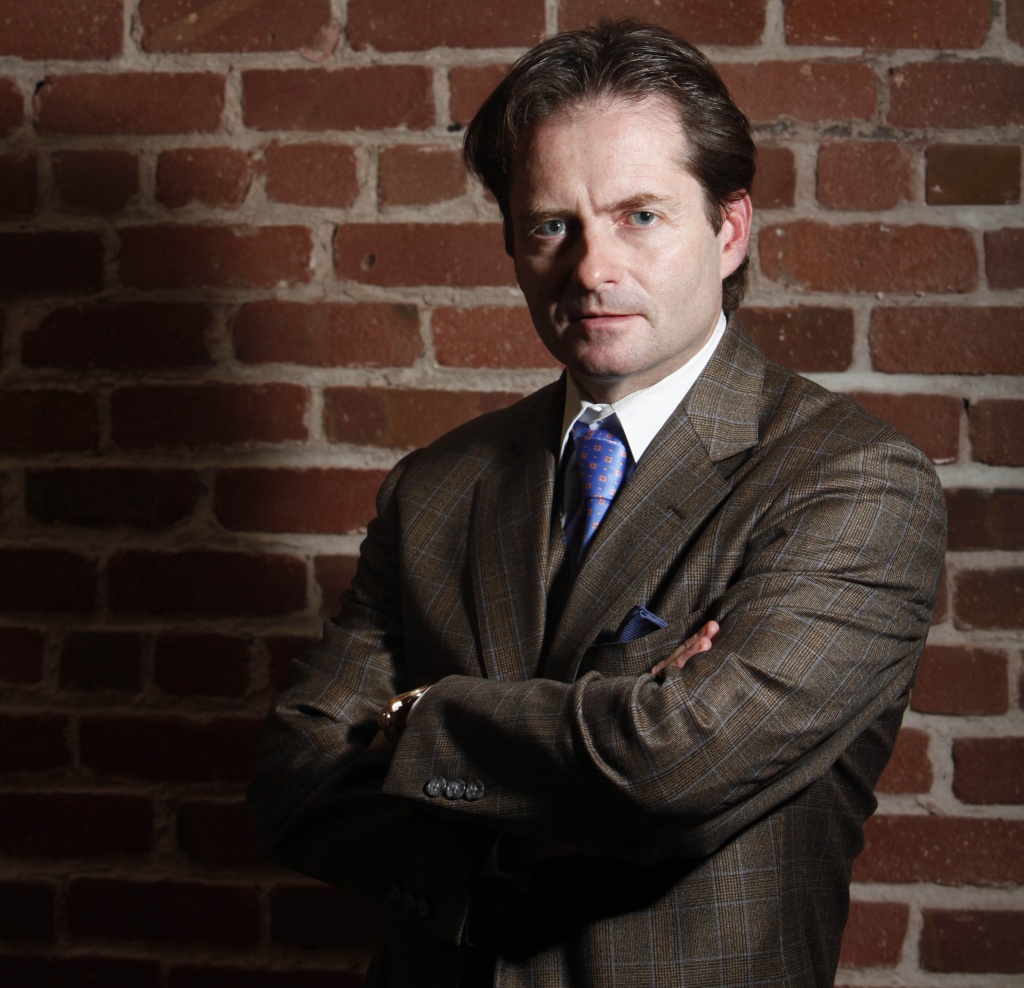
California Lawyer
November 1, 1999San Francisco lawyer Christopher Dolan thinks he is a better advocate for his clients because he is a biker. “It makes me different than another personal injury lawyer,” says Dolan, who owns two BMW bikes and a Honda. “I understand through experience the dynamics of a motorcycle accident or a product defect.”
In his first jury trial, Dolan took on a formidable opponent. He chose to sue California’s Department of Transportation on behalf of an injured fellow biker, Robert Martin. Martin knew of Dolan through the Bay Area biking community. When the dust settled, the jury had awarded his client $2.5 million.
That Dolan feels his hog-riding experience adds value to his lawyering is an indication of how specialized motorcycle related law can be. On one side are plaintiffs’ lawyers who specialize in representing motorcyclists in personal injury and product liability work and, on the other, defense lawyer who work to defend motorcycle manufacturers and public entities in similar case. What set’s this practice area apart, these lawyers say, are the severity of motorcycle related injuries and the prejudices against the biker clients.
Dolan had to deal with both of these issues when he sued Caltrans.
The case began when Dolan’s client, Martin riding his motorcycle in the Northern California countryside on Highway 1 near Bolinas, hit an Acura sedan pulling out of an unmarked intersection. As a result of the October 1994 accident, Martin suffered a severed radial nerve in his right arm and injured his back, neck and shoulder, Dolan says. After four operations, he has limited use of his fingers, and his upper arm is held together by a steel plate and 10 pins.
Dolan argued that his client hit the car because Caltrans didn’t trim shrubbery, which he claimed had obscured the intersection from view, and had neglected to replace a sign alerting traffic to the intersection.
But the victory was no easy feat, he says. His client was a tattooed biker, a hard sell to any jury — and addressing his appearance was a challenge.
“There are a certain class of bikers that need a certain kind of polishing,” Dolan says. “I looked at it as a major restoration project.”
Dolan quickly took his client under his wing, helping him buy a suit and shirt that would cover the snake tattoo on his shoulder. He also convinced Martin to get a haircut, shave his beard and take out his five hoop earrings.
But an even bigger challenge arose when the defense wanted to present a blown-up photograph of Martin’s bike as evidence. Martin had decals on his bike that said “Fuck 55” (which refers to the highway speed limit), “Will Beg For Sex” and, right above the brake light, “Bye”.
To eliminate the risk the decals presented to his client’s new appearance Dolan took the unique step of filing a motion with the court, asking that the photograph be digitized so the decals could be erased electronically. The judge ruled in Dolan’s favor.
“He was the stereotypical young, wild and crazy guy,” Dolan says. “I didn’t want the jury to focus on that image, but instead on the facts of the case. The stickers had no bearing on how he was driving.”
The result was striking, Dolan says. “The jury liked him. He could have been somebody’s brother or son,” he added.
Winning a case against Caltrans put Dolan’s practice on the map, and three years later, his plaintiff’s practice is booming. He currently has his own firm in San Francisco, the Dolan Law Firm, which has seven attorneys. About 60 percent of his cases are motorcycle-related personal injury and product liability cases.
Dolan says he knew he wanted to represent motorcyclists as early as his law student days at Georgetown.
“I wanted to do personal injury work because it gets you into trial and helps people,” says Dolan, who during law school had a vanity plate on his motorcycle that read “litiga8” “Plus, I hang out with bikers”.
Despite his comfort level with bikers, Dolan realizes that one of his hardest tasks is overcoming the stigma against them. “It’s difficult to litigate these kinds of cases because of the prejudices against motorcyclists,” he says. “Defense attorneys exploit that.”
Defense attorneys don’t deny the prejudice can benefit them. “I like it,” says Thomas Keating, a partner at San Rafael’s Freitas McCarthy MacMahon & Keating, who adds that about 10 percent of his caseload involves defending motorcycle-related personal injury cases. “1 would prefer to have a jury that looks at motorcyclists as wild men.”
Bikers’ reputations are not without foundation, however, according to defense attorney Edward Schaefer of Walnut Creek’s Lepper Schaefer & Harrington.
“There’s a reason for stereotypes and clichés,” says Schaefer, who spends about 10 percent of his practice defending public entities in motorcycle law. “The frequency with which one encounters something is what leads to a stereotype.”Motorcyclists get a bad rap because they can be speed demons and ride recklessly he adds.
To eliminate the advantage that bikers’ notoriety gives to the defense, Dolan gets help from a psychologist to form voir dire questions that will sniff out jurors’ prejudices. His goal is to get jurors to look objectively at bikers.
For example, during jury preparation, he asks how many jurors have preconceived opinions against bikers. “I ask them, how many people think my client is more likely to be a fault or to have gotten what he deserved because he was riding a bike?”
Then Dolan addresses some of the most common complaints about motorcyclists, such as lane-splitting, or riding between two lanes. He explains that it’s legal in California because the bike keeps its engine cool by continuously moving.
However, some don’t respond to Dolan’s methods. “I had one juror tell me a motorcyclist was a portable organ donor” he says.
The common belief that bikers ride at recklessly high speeds has led Dolan to take extreme measures when representing motorcyclist. For example, to prove a client wasn’t speeding – a common defense argument – he once attached a camera to his helmet, rode the same route his client had taken and hired a retired California Highway Patrol officer to track his speed with radar. He was able to prove that his client wasn’t going too fast and that road conditions caused the accident.
Along with juror prejudices, what makes motorcycle-relate law more challenging than other personal injury law cases is the lack of laws that specifically address motorcyclists or motorcycle manufacturers. Instead, the applicable laws are those that govern the operation for automobiles and the construction and maintenance of roads.
Seventy percent of motorcycle accidents are head on collisions between a bike and a car, Dolan says. Other accidents are caused by a faulty highway design.
“Highway design cases are extremely difficult to prove because you have to show something about the road that would affect a motorcycle and not a car,” Dolan explains.
For a defense attorney, an easy case to defend is one involving a motorcyclist traveling 100 mph on a rain slick road with four witnesses at the scene of the accident because the biker is driving recklessly. Schaefer says. “A harder case involves a site that has been susceptible to accidents in the past and any case in which you’ve got egregious injuries.” In either case, the price of the defense goes up he adds.
Because of the severity of injuries that bikers suffer, including head injuries, amputations and paralyzed limbs, an emerging trend in the product liability area involves cases against motorcycle manufacturers alleging that the bikes are faulty because they are not as safe as a car.
“Obviously anything that transports the human body should be made in such a way as it’s safe for the occupant”, according to Arnold Laub of San Francisco’s Laub & Laub, who devotes 15 percent of his practice to representing bikers. “Motorcycles should have the same requirements as any other vehicle.”
Not surprisingly, defense lawyers disagree.
“Its absurd that motorcycles are supposed to perform as well as automobiles,” says Timothy C. Smith, a product liability defense partner at San Francisco’s Carroll Burdick & McDonough, who represents BMW, which makes motorcycles as well as luxury cars. “We see more and more cases every year that address the crash-worthiness of a motorcycle.”
According to Smith, courts are throwing out some of these product liability claims because the motorcyclists assume the risk of injury because the danger involved is obvious.
Not so, Laub says. “Even if the rider is the one at fault, it doesn’t take away the responsibility of the manufacturer to design a safe vehicle, he responds.
Because of these legal and psychological challenges, Forestville sole practitioner and motorcycle enthusiast Kim Clark agrees with Dolan that hog-riders make the best attorneys for other bikers, saying “he can do a better job helping a client who has been injured because he has personally broken more bones in my body than any of my client’s.”
His mere presence as a lawyer and a biker contradicts the stereotype, Dolan adds.
“I will walk into trial with my helmet and my jacket and will set it at the counsel table, so the jury will see that a professional rides a motorcycle,” he says. “I want to disassociate the image of a motorcyclist from the wild-ass biker guy that the defense wants you to believe.”










